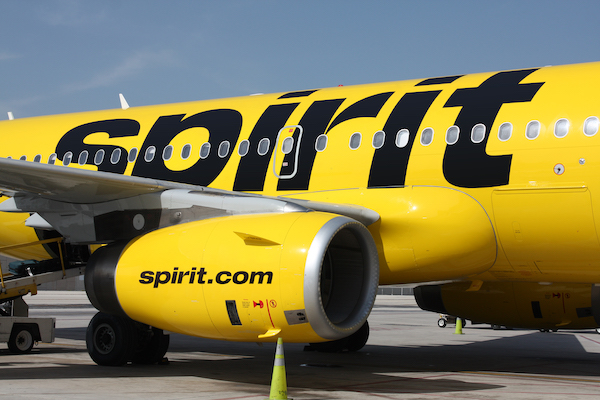A federal court has put a stop to JetBlue’s acquisition of Spirit Airlines. The $3.8 billion deal was halted due to antitrust concerns.
. This decision highlights significant implications for market competition and consumer interests. The ruling comes amid growing scrutiny over airline industry consolidation.
Overview of Judicial Decision
A federal judge in Boston has halted the planned $3.8 billion acquisition of Spirit Airlines by JetBlue. The court agreed with the U.S. Department of Justice’s stance that the merger would be anti-competitive and detrimental to passengers. JetBlue’s legal counsel had criticised the action against the merger, labelling it a “misguided” effort against the consolidation of the nation’s sixth and seventh-largest airlines, which collectively would manage 10.2% of the domestic market, shadowed by four major carriers.
Arguments Against the Merger
District Judge William Young highlighted concerns that JetBlue’s acquisition of Spirit would prompt JetBlue to abandon its identity as a maverick and low-cost carrier. Young articulated that allowing JetBlue to absorb Spirit, as per the proposal, would eliminate a unique competitor in the airline sector that is crucial for innovation and price regulation. It would further tighten what is perceived as an oligopoly by immediately doubling JetBlue’s market share in the sector.
While proponents of the merger argued that combining JetBlue and Spirit would increase competition against larger airlines, they overlooked the potential impact on consumers reliant on Spirit’s distinctive low-cost model. The head-to-head competition between the two airlines has historically exerted downward pressure on prices, a benefit to all consumers, according to the judge.
Impact on Consumers and Market Dynamics
The intertwined operations of JetBlue and Spirit currently stimulate significant competition nationally, particularly through Spirit’s pricing strategies. The loss of Spirit as a standalone entity could hinder the unique market position it holds within the domestic air travel arena. Replicating Spirit’s business model by other airlines might be improbable, even with low entry barriers and a dynamic industry, given sector-wide aircraft sourcing challenges.
Judge Young’s ruling underscores the air travel industry’s intricate dynamics, where maintaining diverse competitive forces is crucial to consumer welfare. He stressed that, whilst JetBlue’s growth may require mergers, preserving market competition should take precedence over expansion strategies.
The judgment acts as a reminder of the importance of competitive diversity in sustaining affordable and varied consumer choices in aviation.
Response from JetBlue and Spirit
In response to the ruling, JetBlue and Spirit issued a joint statement expressing their intention to evaluate “next steps as part of the legal process.” This statement acknowledges the continuing legal complexities and strategic decisions ahead for both airlines as they navigate the judicial landscape.
U.S. Attorney General Merrick Garland lauded the court’s decision, emphasizing its significance as a triumph for millions of passengers who would otherwise face steeper fares and reduced options if the merger proceeded.
Significance of Antitrust Enforcement
The case places a spotlight on the critical role of antitrust laws in safeguarding consumer interests within the airline industry. The enforcement of these laws is crucial in preventing excessive market dominance that can lead to inflated prices for passengers.
Principal Deputy Assistant Attorney General Doha Mekki highlighted the judgement’s reflection of the Department of Justice’s commitment to consumer protection, acknowledging the forthrightness of the court in recognising the role of government bodies in shielding consumers who would typically have no voice.
This ruling reiterates the ongoing commitment of regulatory bodies to uphold competitive practices and shield consumers from anti-competitive harms.
Industry Expert Opinions
Experts monitoring the aviation industry assert that the prevention of JetBlue’s acquisition of Spirit ensures the sustenance of competitive market conduct. Maintaining Spirit as a separate entity is deemed vital for the diverse pricing and service options it provides to customers.
Aviation analysts further suggest that this decision serves as a precedent that could influence future regulatory assessments of mergers and acquisitions within the industry.
The emphasis on protecting consumer choice and preventing oligopolistic market control remains central to sustaining the competitive health of the airline sector.
Future Prospects and Considerations
JetBlue and Spirit now face the challenge of reconsidering their strategic direction in light of the ruling. The potential for an appeal exists, which would prolong the legal process and affect strategic planning.
The implications of this ruling extend beyond the involved airlines, persisting as a significant talking point for all industry stakeholders contemplating similar mergers.
Ultimately, the court’s decision may guide the trajectory of future mergers, compelling airlines to prioritise competitive diversity over consolidation.
The recent court decision underscores the delicate balance between corporate growth and consumer protection in the airline industry. As JetBlue and Spirit assess their legal options, the focus remains on preserving competition to benefit consumers. The ruling solidifies the role of regulatory bodies in maintaining market fairness, setting a precedent for future airline mergers.

